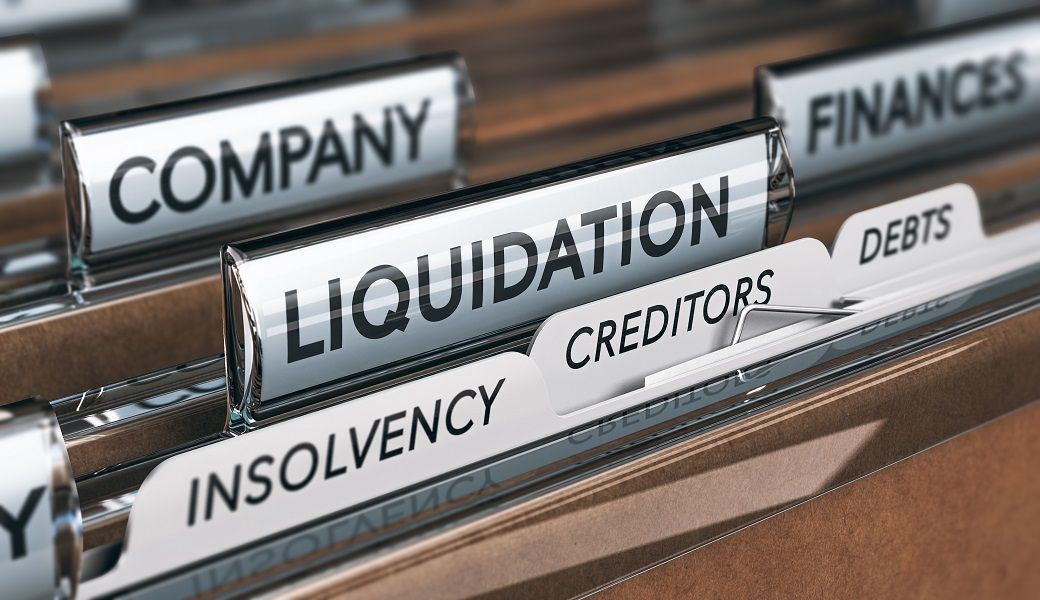Liquidation isn’t an easy process, however Creditors Voluntary Liquidation offers transparency and control that could help alleviate the burden of financial difficulties for a company. If a business is struggling with unsustainable debt the voluntary liquidation of creditors is a viable option to end the company while shielding personal assets from creditors. The process is initiated by directors of a business who realize that their debts significantly outnumber their assets. By opting for an CVL directors are able to manage the situation, appoint their own liquidators and limit the impact on their employees and customers. Creditors’ voluntary liquidation is never an easy option, but it gives business owners the chance to take a lesson from previous financial mishaps.

Liquidation is an action that is required when a company fails to meet its financial obligations. It will pay off any outstanding debts and close the company. The process of liquidating a company is a complex and difficult process and involves the sale of assets to pay back creditors. You must seek out an expert in liquidation in the UK in case you’re having financial issues and want to liquidate your company.
In the UK there are three kinds of liquidation: creditors’ voluntary, voluntary, and compulsory. The liquidation option that is appropriate for your company depends on your situation and the options you have available.
Directors and shareholders may decide to liquidate a business voluntarily in the event that they believe it is not financially viable. It is a cheaper liquidation, and is more easy to execute than a compulsory liquidation, which is ordered by a court.
A creditor’s voluntary liquidation is a liquidation on a voluntary basis that can be initiated by creditors who consider that the company is insolvent. This form of liquidation enables the company to repay its creditors in a timely manner, with the assistance of a licensed liquidator.
In liquidating a business, one of the main goals of a company liquidator is to maximize the value of assets of the company to pay its creditors. The liquidator is responsible for selling the company’s assets company, such as inventory, equipment and property and makes use of the proceeds to pay off outstanding obligations. Upon payment of creditors, any remaining money will be paid out to shareholders.
If you’re contemplating liquidating your company, it is essential to find a reliable and reputable liquidation service in the UK to help you navigate the procedure. Take note of these important aspects when selecting a liquidator.
Experience and expertise: Find an experienced liquidator and a proven track record within the industry. Choose a company that has an authorized team of insolvency professionals who can offer an expert guideline and support throughout the process.
Pricing transparency: Liquidation is a complicated and expensive process. It’s important to choose a company with transparent pricing. You should look for a company with a transparent price breakdown of the expenses upfront.
Integrity and Professionalism: Choose a liquidation firm that operates professionally. Find a liquidation firm that is ethically minded and is registered with regulatory organizations.
Service individualized: Each company is different and your liquidation is unique. Look for a company who provides personal service that is tailored to your specific requirements.
Reliability and availability. Liquidation is a highly-demanding and stressful procedure. Therefore, it is crucial to choose a liquidation company which is available whenever you require it. Search for a liquidation company which can offer assistance and assistance whenever you need it.
Creditors voluntary liquidation may appear intimidating, but it’s something to consider if your company is in trouble and needs significant assistance. It’s important to remember though that this process will not immediately bring your business back It is important to take proactive steps ahead of the process. It may be necessary to hire an independent insolvency expert, use cost-cutting strategies as well as look for specialized solutions, and manage any ongoing costs. Ultimately, there are ways to save a business using alternatives for restructuring and debt relief like voluntary liquidation of creditors and creditors voluntary liquidation. You only need the right people around you! A knowledgeable professional at your side, offering honest advice is vital in times of transition. If CVL could be an option for your company, make sure you’re aware and develop a road map to achieve success. With financial stability in sight the business owner can finally have the security and confidence needed to run their business again.
For more information, click liquidator company